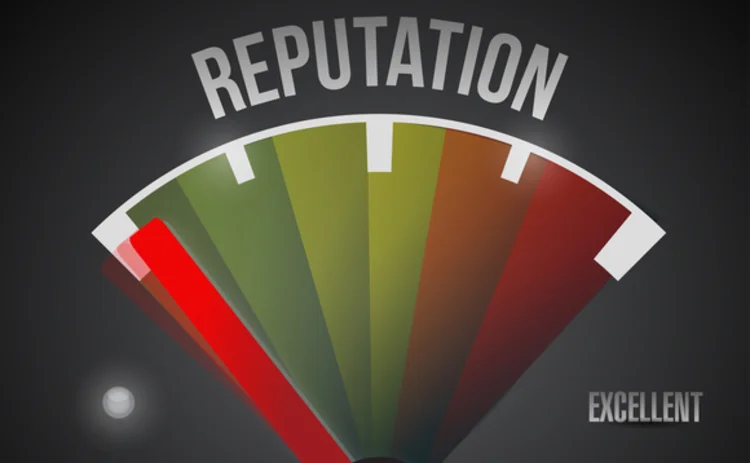
FCA BI test case: Insurers likely to appeal - but at what cost?

Insurers have been urged to consider the “reputational damage they may suffer” before appealing the Financial Conduct Authority's business interruption test case judgment.
In a September 15 High Court judgment, Lord Justice Flaux and Mr Justice Butcher, ruled partly in favour of the FCA and policyholders on key themes. This means some businesses could be entitled to compensation for coronavirus-related BI claims.
Arch, Argenta, Ecclesiastical, Hiscox, MS Amlin, QBE, RSA and Zurich were named as defendants in the case, but it is expected to affect around 60 insurers.The FCA represented upwards of 370,000 policyholders in the legal action.
However, the judgment is not final, as the parties involved in the test case have the opportunity to apply to the court for permission to appeal. Meanwhile policyholders are not bound by the judgment and can pursue other avenues to recoup their money, including Financial Ombudsman Service complaints and joining class actions.
The financial impact of the case on insurers is only beginning to emerge. Hiscox said it should see around a third of its contested policies pay out to the tune of up to £100m hit net of reinsurance should the judgment stand. RSA reported a net hit of around £85m. On the other hand, Ecclesiastical said it did not expect its policies to pay out based on the ruling. Zurich said its wordings were not deemed to pay out but confirmed it was reviewing the “full implications” of the judgment on other policies.
An appeal could be expedited to appear before the Supreme Court in October. However, with a 162 page judgment to carefully consider, Association of British Insurers director general Huw Evans has said its members will need “a little time” to work out what happens next.
Options
Commentators suggest it is likely that at least some insurers will seek to question the judgment.
Not all policies were deemed equal in the test case judgment, with disease and ‘hybrid’ policies most likely to trigger a payout. And with multiple insurers, including those not directly party to the legal action, as stakeholders, it is probable we will see different approaches.
The court dismissed insurers’ arguments on the Orient Express case, a BI claim related to Hurricane Katrina, as irrelevant because the perils were were different. This seems a probable avenue of appeal.
Aaron Le Marquer, partner at Fenchurch Law, pointed out: “The court’s finding that Orient Express was wrongly decided and that they would not have followed it even had they not found it to be distinguishable, will certainly raise eyebrows, and will surely lead to an appeal from insurers on this issue at least.”
“In deciding whether to appeal on the policy trigger issues, insurers will have to weigh up the potential further reputational damage they may suffer from being seen to resist the court’s very clear findings,” Le Marquer noted.
Reputation
In the meantime insurers will surely be asking themselves whether the cost of an appeal is worth the price of continued reputational damage.
Treasury Committee chair Mel Stride appeared to come down on the side of businesses as he cautioned: “This ruling will provide hope for many businesses that have been put through the mill whilst seeking insurance pay-outs.
“For some though, the devil will be in the detail of this judgement. Others may be caught up in any appeals. It is to the credit of the FCA that it has initiated and driven this approach.
“It’s now vital that all those who should be paid receive these payments as soon as possible.”
Senior politician Stride’s comments are the tip of the iceberg. Action groups and their legal representatives have been vocal about what they perceive insurers as doing wrong.
Industry insiders
But some of the more surprising voices to emerge from the BI furore are those of industry insiders. Many saying ‘enough is enough’.
Mark Bishop, communications and reputation consultant, formerly head of a public relations team for a major UK insurer, told Post: “Whatever the outcome of the case, the industry had already lost the reputation battle. Even for those insurers who successfully defended their position this is a tainted topic and not one they can use to champion their brand.
“Insurers will look carefully at the full judgment and consider whether to appeal but from a PR perspective they should pay up and let the industry focus on the reputation rebuild phase.”
Christopher Croft, CEO of the London & International Insurance Brokers Association, said: “Insurers will have obligations they will need to consider carefully. But on the face of it, if you are taken to court by your regulator and lose, that is a pretty powerful message you should heed.”
And Graeme Trudgill, executive director at British Insurance Brokers’ Association, said that claims payments would set insurers on the path to “re-establishing the good name of the industry” and called for careful consideration before jumping into any appeal.
Trudgill said: “The judgment is thorough, detailed and provides clarity in explanations, but leaves room for the possibility of appeals. As with all cases that look at interpretation of contract wordings, there needs to be time for reflection and learning by all parties in preference to appealing the judgement.
“Should there be any appeals on points of law, we hope that their hearings can be expedited and where cover is ultimately found to be in place, claims payments can be made with equal swiftness. This would set us on the path to re-establishing the good name of our industry.”
Policyholders
The response of Nigel Manton, campaigner for Fairness for Small Businesses and their Business Interruption insurance, gives some insight into how policyholders may be feeling about insurers right now.
Manton said that insurance companies don’t “give a tinker’s cuss about their reputation”.
He continued: “Insurance is necessary, you can’t trade without it. They are all in it together, they couldn’t care less, and they just want to not pay out.
“They’re going to have to make a decision about the risk and reward. They know they should pay out once they know that the policies were really badly written.
“My insurance policy has three section two’s, they keep referring to a section two, but there’s three of them. So it’s obviously just been copied and pasted by somebody thinking the pandemic will never occur.
“At the end of the day, they should pay out, but they don’t want to because it’s an enormous amount of money, and they never wished to cover a pandemic.”
Action group pressure
Action groups have, perhaps unsurprisingly, taken a strong stance on insurer appeals.
For policyholder representatives like Richard Leedham, the Mishcon de Reya partner representing the 500-strong Hiscox Action Group, there is no question over whether insurers should be paying out.
According to Leedham an appeal would have “appalling” impact on the industry.
He said: “The insurers have said publicly they welcome this case – it will give clarity. They made reference to the fact they might have to appeal, but they’ve embraced the process. We’ve got a decision. They will be seen as evading their liabilities by the public if they appeal because the public opinion will say ‘you’ve delayed everything for six months, there’s now this court case that says you should be paying, you need to pay’
“The problem with it is plays into the lawyers driving all of this, when in fact what is happening is businesses desperately need the money.”
Where insurers do intend to appeal, there is also the question of whether they will supply interim payments to businesses in need.
Sonia Campbell, Mishcon de Reya partner and Hospitality Insurance Group Action lawyer, argued: “Insurance companies have been told that some policies cover these claims, and some insurance policies don’t cover these claims. Where policies cover claims, they should now start paying those claims.”
And if the case goes to appeal, insurers “should still pay,” according to Campbell.
According to Philip Kolvin, QC, Cornerstone Barristers, representing the NDML action group, any appeal will further “harm” insurers’ vital reputation with the people who should matter most - their customers.
He said: “If I was looking to insure my business next year, and I knew that last year people like me had been dragged up hill and down dale, at a time of their greatest need, I would be looking to work out who I want to be insured by.
“Imagine a householder standing next to the wreckage of their fire damaged house and insurer driving by in Mercedes saying ‘I’m really sorry for this very technical reason we’re not paying you a penny’ Who’s going to want to insure themselves through the next year?
“I’m not saying the insurers have behaved improperly, they’re perfectly entitled to argue what the meaning of every single sub clause in their long policies mean. But if people get the impression that they’re going to have the same fight to get any money out of the insurers then that will have a consequence.
“For some of these insurers, their advertising strapline should read ‘insurance, except when you need it’.”
He added that an appeal would “leave the market way open to another insurer to say ‘we’re not going to behave like that’.”
On the other hand, if insurers decide not to appeal they could win back some vital points with customers.
Kolvin said: “The first insurer that says ‘I’ll tell you what, I can see we’ve got a case on appeal, but we’re not going to exercise it because we think that we’ve got a wider duty’ will be garlanded in roses. They’ll do themselves an enormous amount of good.”
Only users who have a paid subscription or are part of a corporate subscription are able to print or copy content.
To access these options, along with all other subscription benefits, please contact info@postonline.co.uk or view our subscription options here: http://subscriptions.postonline.co.uk/subscribe
You are currently unable to print this content. Please contact info@postonline.co.uk to find out more.
You are currently unable to copy this content. Please contact info@postonline.co.uk to find out more.
Copyright Infopro Digital Limited. All rights reserved.
As outlined in our terms and conditions, https://www.infopro-digital.com/terms-and-conditions/subscriptions/ (point 2.4), printing is limited to a single copy.
If you would like to purchase additional rights please email info@postonline.co.uk
Copyright Infopro Digital Limited. All rights reserved.
You may share this content using our article tools. As outlined in our terms and conditions, https://www.infopro-digital.com/terms-and-conditions/subscriptions/ (clause 2.4), an Authorised User may only make one copy of the materials for their own personal use. You must also comply with the restrictions in clause 2.5.
If you would like to purchase additional rights please email info@postonline.co.uk








